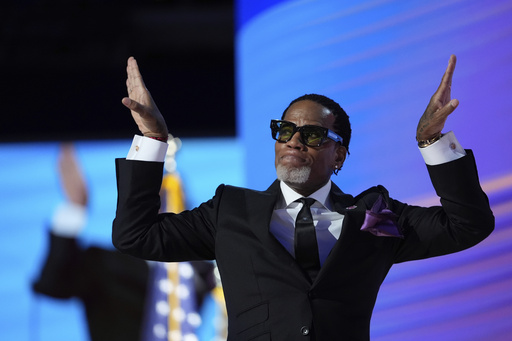Vice President Kamala Harris, on the night she made history as the first woman of Black and South Asian heritage to be a major party’s presidential nominee, emphasized her multiracial background and upbringing rather than explicitly mentioning the racial and gender milestones she would achieve if elected to the White House. During her speech, Harris paid tribute to her roots as the daughter of a brown woman and Caribbean man and acknowledged the diverse community of “aunties” and “uncles” in California’s Bay Area, showcasing a message that resonates with a growing multicultural population in the U.S.
In her address, Harris highlighted the significance of her personal story by including relatives of various racial backgrounds joining her on stage for the traditional balloon drop, symbolizing the diversity within her own family. This visual representation aimed to appeal to a broad audience who could see themselves reflected in families like hers. As the U.S. population becomes increasingly multiracial, with around 12.5% identifying as two or more races in 2022, Harris’ background carries significant political and social implications.
The historical context of racial inequality and discrimination in the United States was not lost on attendees at the convention, with many choosing to wear white in homage to the suffrage movement and the ongoing struggle for equal rights. Despite the strides made in diversity and inclusion, issues of race continue to be central in political discourse and societal progress.
Harris’ heritage has been targeted by her opponents, including former President Donald Trump and Senator JD Vance, who have sought to undermine her Black identity. Nevertheless, various speakers at the convention proudly acknowledged Harris’ race and the significance of her nomination, drawing parallels to past trailblazers like Shirley Chisholm.
Throughout her speech, Harris shared personal anecdotes about her upbringing and the values instilled in her by her parents, emphasizing the importance of perseverance in the face of adversity. By highlighting her family’s journey and her own experiences, Harris aimed to connect with voters on a personal level and address the challenges of racial identity in America.
The Democratic National Convention provided a platform for Harris to celebrate her historic achievement and the significance of her nomination for marginalized communities across the country. Watching the event unfold, attendees expressed a sense of pride and hope for a more inclusive and equitable future, symbolized by Harris’ groundbreaking candidacy.
Harris’ nomination as the vice presidential candidate represents a milestone in American politics and a testament to the progress made in diversity and representation. As the campaign unfolds, Harris’ personal story and commitment to social justice are expected to play a central role in shaping the national conversation on race, identity, and equality.
